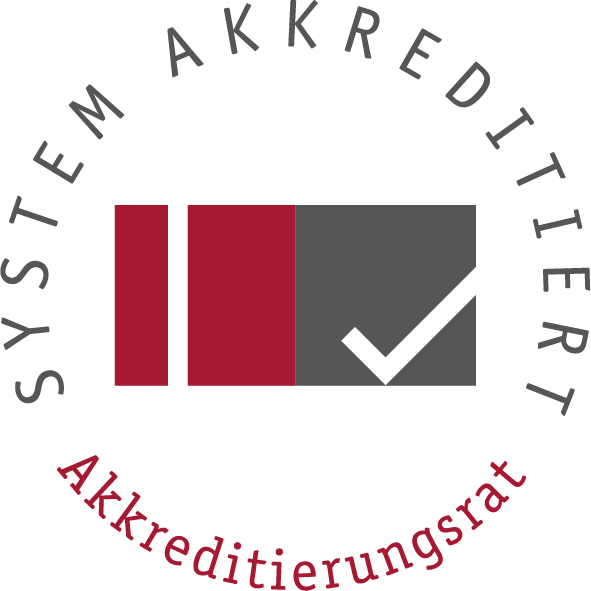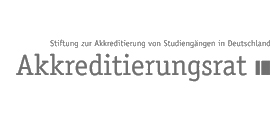Hinweis: Auf dieser Seite finden Sie Informationen zum alten Akkreditierungsrecht bis 31.12.2017.
System accreditation
Object | Assessment | Obligation
Objects of the Accreditation Process
System accreditation is objected to the internal quality assurance system of a higher education institution in the field of teaching and learning. As a result the higher education institution is allowed to accredit its own study programmes. Study programmes set up as specified by the accredited system or that already have been the subject matter of internal quality assurance as specified by the accredited system carry the foundation’s quality seal in the same manner as in programme accreditation.
In system accreditation, the structures and processes relevant to teaching and learning are assessed on whether they guarantee that the qualification objectives will be achieved, and that there is a high standard of quality for the study programmes, whereby the European Standards and Guidelines for Quality Assurance in Higher Education (ESG), the guidelines set by the Standing Conference of the Ministers of Education and Cultural Affairs of the Länder (abbr.: Standing Conference) and the Accreditation Council criteria, apply
A positive system accreditation attest the higher education institution that its quality assurance system in the field of teaching and learning is appropriate to achieve the qualification objectives and the quality standards of its study programmes. The higher education institution carries the foundation’s quality seal System akkreditiert
Assessment
The system accreditation procedure is a multilevel procedure which is based upon the principle of peer review.
If a higher education institution applies to an agency for system accreditation, the agency will initially conduct a preliminary assessment to check whether the prerequisites for the admittance to system accreditation are met. If the findings of the agency are positive, it will appoint a group of experts structured according to the profile of the higher educational institution. The group of experts will be made up of at least three members who have experience in the field of governance of higher education institutions and internal quality assurance in higher education institutions, a student with experience in self-government in higher education and accreditation, as well as a member from professional practice. The members of the group of experts have experience in the presidency of higher education institutions, curriculum design and in the quality assurance of teaching and learning. One member shall be from abroad.
The assessment of the internal quality management systems of the higher education institution is based on the rules for the accreditation of study programmes and for system accreditation. It generally includes two on-site visits and an assessment of relevant features of the design of the study programme, its implementation and quality assurance (samples), as well as the analysis of the higher education institution’s documentation for application. The purpose of the samples is to check whether the intended actions within the quality management system under review actually occur as part of the study programme thus guaranteeing quality in terms of teaching and learning. During the assessment, the group of experts will also conduct on-site interviews with the presidency of the higher education institution, those responsible for equal opportunities, administrative staff, those responsible for quality assurance and, of course, the lecturers and the students. Following the on-site visits and the samples, the experts will prepare a report with a recommendation on the system accreditation.
Based upon the experts’ report and according to the rules for decisions stipulated by the Accreditation Council, the agency’s relevant decision-making committee will then decide upon an accreditation for the respective system, an accreditation with conditions, a suspension, or a refusal of accreditation
Following the procedure, the agency will publish its decision, the expert’s report and the names of the experts in the Accreditation Council database. If there is a negative decision, the Accreditation Council will receive the appropriate notification instead of the publication.
Obligation
Accreditation is mandatory, according to the Common Structural Guidelines of the Länder (states) and is required in various ways as a condition for state approval, according to the respective state laws.
File Synopsis: Relation between accreditation and state approval of study programmes according to federal state law, state 17.06.2011 (in German only)
Accreditations always have a time limitation; system accreditation is usually valid for a period of between six and eight years.
Detailed information on procedure and requirements in system accreditation are available in the regulations for the accreditation of study programmes and for system accreditation.
